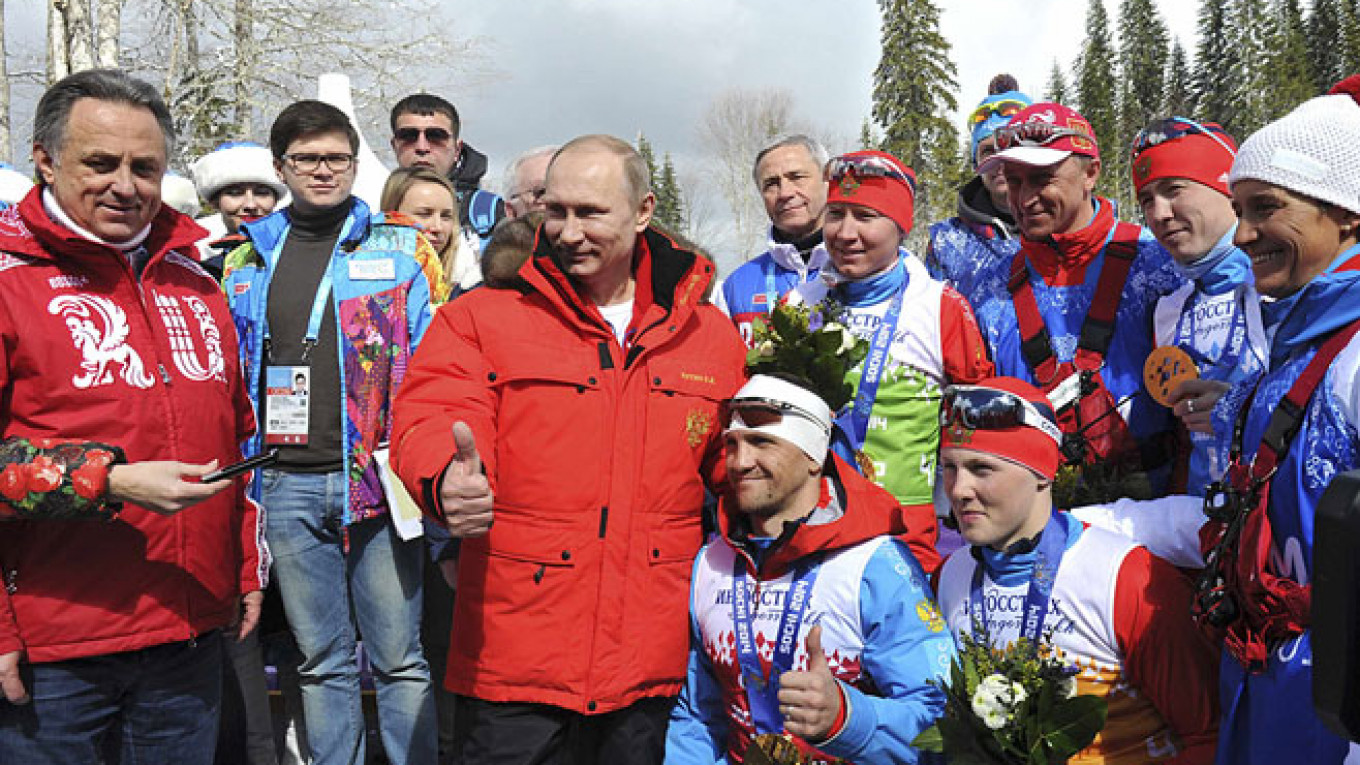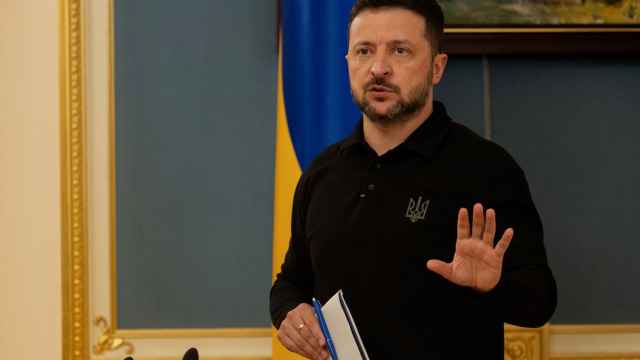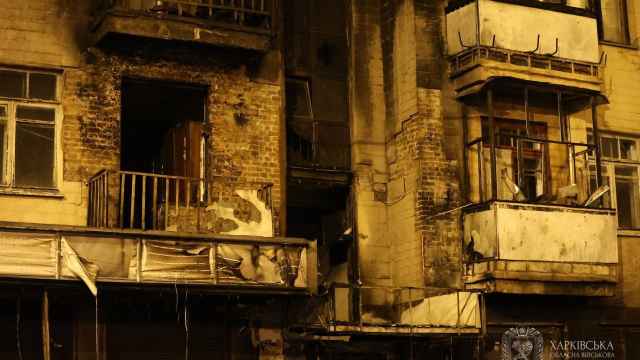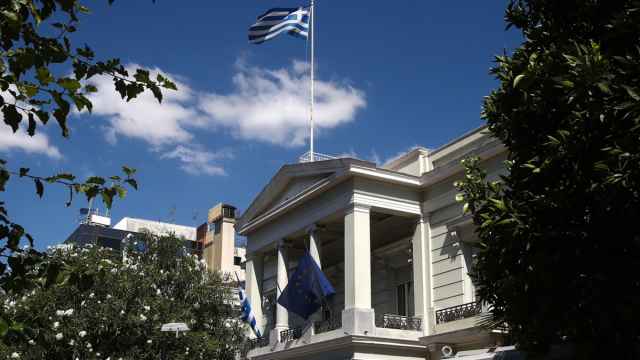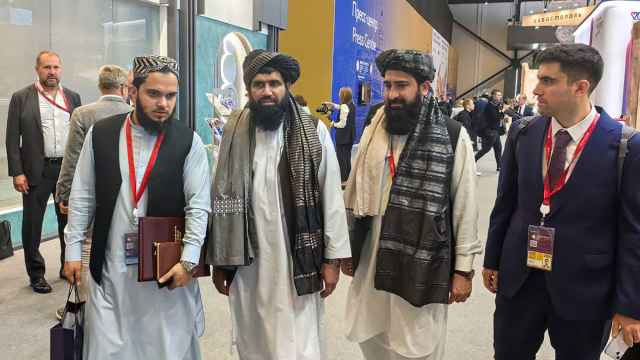Triumphant in the midst of global condemnation, President Vladimir Putin clinked his champagne flute with sports leaders, toasting the success of his pet project in Sochi.
Under chandeliers in ornate surroundings, the wine was flowing over lunch during the Paralympics as the president saluted the transformational effect of his nation's six-week sporting extravaganza. For Putin, the 2014 Winter Olympics and Paralympics were a validation of modern Russia's place on the world stage and "our invariably kind attitude toward friends."
But between the Olympians leaving the Black Sea resort of Sochi last month and the Paralympians arriving, Putin became rapidly isolated in the international community as Russian forces took over Ukraine's Crimean Peninsula, only 480 kilometers away.
The Paralympic flame was set to be extinguished in Sunday night's closing ceremony just as voting ends in a referendum, denounced in the West as illegitimate, on whether Crimea should split off from Ukraine and seek annexation by Russia.
Although Ukraine backed off from boycotting the Paralympics, the crisis afflicting their homeland remained on the minds of athletes competing in Russia. In protest, Ukrainian paralympians covered their medals during podium ceremonies.
"That is how we show our protest and disagreement that our country could be divided and part of it could be excluded from Ukraine," said Iuliia Batenkova, who won six medals in Sochi including one gold. "Crimea is my motherland, where I was born, and of course I worry about it. I want peace."
Putin's government remains convinced that the successful transformation of Sochi — once a decaying Soviet-era resort — into a world-class tourist hotspot will override the current diplomatic tensions.
"The new Russia is a Russia that is capable of carrying out large-scale projects, capable of creating modern infrastructure in a record short timescale, both in terms of sports and the rest of society," Deputy Prime Minister Dmitry Kozak told The Associated Press in Sochi.
"The new Russia is a Russia that open to the whole world, which cooperates and makes friends with people from all over the world," he declared.
That is the impression some visitors had after the much more high-profile Winter Olympics — but it could be a rapidly shifting vision.
"I think [the Olympics] did improve the image [of Russia]," Martin Sorrell, CEO of global advertising giant WPP, said in an interview in Sochi. "But now you have this controversy over Ukraine, Crimea, and that is driving a lot of the perception."
But the world cannot afford to ostracize Putin, Sorrell said, especially with domestic polls that indicate Putin's popularity has risen as a result of the games that are the centerpiece of his third term as president.
"Putin is extremely strong, has a clear approach and a clear strategy — you might agree with it, you might disagree with it — but he has considerable resources of all types," said Sorrell. "We in the West do not quite get how influential Russia is or how influential we are prepared to accept them being, politically and economically. But they are a force to be reckoned with."
The scale of the Sochi venture — it was the most expensive Olympic Games ever, winter or summer — was matched by the record-breaking achievement of the Russian athletes who topped the Paralympic medals table.
"Russia always wants to try to be the best," biathlete Alena Kaufman, who won three golds for Russia, said through a translator. "We have definitely done that."
She also noted with pride how sports can give hope to those with disabilities.
"There could be small children in children's homes with disabilities who perhaps thought before they were limited by their disability but now see there are possibilities," Kaufman said.
A Message from The Moscow Times:
Dear readers,
We are facing unprecedented challenges. Russia's Prosecutor General's Office has designated The Moscow Times as an "undesirable" organization, criminalizing our work and putting our staff at risk of prosecution. This follows our earlier unjust labeling as a "foreign agent."
These actions are direct attempts to silence independent journalism in Russia. The authorities claim our work "discredits the decisions of the Russian leadership." We see things differently: we strive to provide accurate, unbiased reporting on Russia.
We, the journalists of The Moscow Times, refuse to be silenced. But to continue our work, we need your help.
Your support, no matter how small, makes a world of difference. If you can, please support us monthly starting from just $2. It's quick to set up, and every contribution makes a significant impact.
By supporting The Moscow Times, you're defending open, independent journalism in the face of repression. Thank you for standing with us.
Remind me later.


